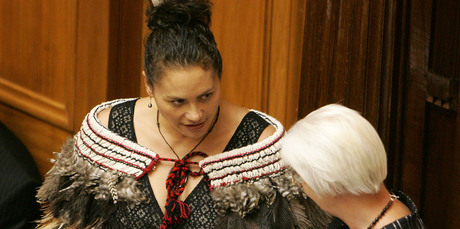By Pearl Rimon
Impunity Watch Reporter, Europe
KIEV, Ukraine – A three judge panel in Ukraine’s highest court upheld a guilty verdict against former Prime Minister Yulia Tymoshenko. In October 2011, Tymoshenko was convicted of abuse in office for negotiating and signing a natural gas contract with Russia.

The United States, Russia and the European Union have condemned the high court’s ruling.
Ukrainian Judge Oleksandr Elfimov said in his ruling that he “found no grounds to uphold the appeal,” and that the prison term is “adequate to the gravity of the crime.”
The EU issued a statement that Ukraine needs to “redress the effects of selective justice.” This is not the firs time the EU has commented on the Tymoshenko affair, in 2011 they released the statement that the trial “did not respect the international standards as regards fair, transparent and independent legal process.”
Sergiy Vlasenko, Tymoshenko’s lawyer, said that they are filing another appeal in the EU Court of Human rights.
“Today we again received a shameful decision which proves that a dictatorship is establishing itself in Ukraine,” Eugenia Tymoshenko, the daughter of Yulia Tymoshenko, told reporters.
Even Ukraine’s close allies’, Poland and Sweden, have expressed their concern about the Tymoshenko verdict.
Vice prime minister Sergei Tigipko, said “It is clear to us there is a clear violation. This was a criminal case, not a political case.” The Yanukoyvch government blames Tymoshenko’s gas deal with Russia for the Ukraine having the most expensive gas prices in Europe. Tigipko says that the deal cost the country six billion dollars in 2011.“Under Ukrainian law the cabinet should approve all such international agreements and this agreement was not approved by the cabinet,” added Mr Tigipko.
The European Court of Human rights in Strasbourg opened hearings on Tuesday probing into Tymoshenko’s pre-trial detention being politically motivated and if her rights were violated in prison.
Tymoshenko was the leader of the opposition party, All-Ukrainian Union “Fatherland Party”. She is credited as helping organize the 2004 Orange Revolution that resulted in massive protests across the country.
For further information, please see:
Focus News Agency– Yulia Tymoshenko’s Jail Sentence Confirmed — 29 August 2012
International Business Times — Former Ukrainian PM Yuliya Tymoshenko Loses Court Appeal, Stays In Jail – 29 August 2012
The Telegraph — Ukraine Minister Insists Yulia Tymoshenko Broke The Law – 29 August 2012


